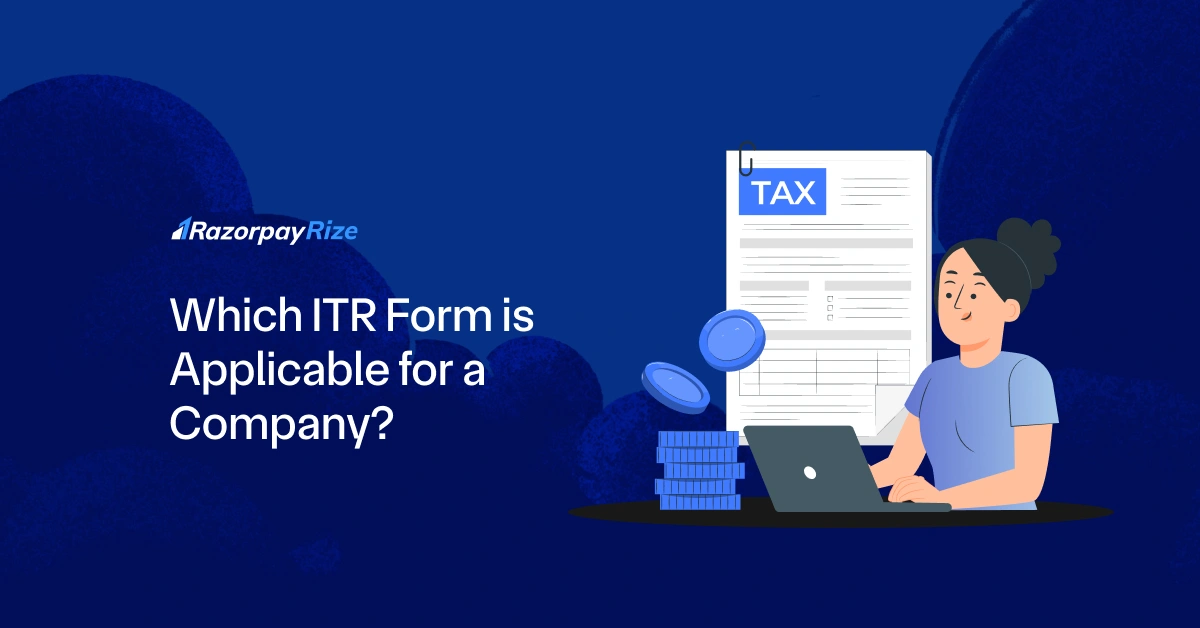Micro Finance Companies (MFCs) are changing lives by making financial services accessible to people who are often overlooked by traditional banks. These companies focus on helping low-income individuals, small business owners, and self-employed people by offering small loans and basic financial support.
By doing so, they promote financial inclusion and play a key role in empowering communities and boosting local economies. However, like any financial institution, Micro Finance companies need to be registered and follow specific rules and regulations to operate legally and build credibility.
In this blog, we’ll walk you through everything you need to know about registering a Micro Finance Company in India- from understanding what they do, to the steps, documents, and costs involved in the registration process.
Table of Contents
What is a Micro Finance Company?
A Micro Finance Company is a financial institution that provides small loans and financial services to low-income individuals, self-employed persons, and small enterprises who lack access to conventional banking services.
These companies play a vital role in empowering economically weaker sections, supporting entrepreneurial initiatives, and fostering local economic development by promoting financial inclusion.
Features of Micro Finance Company
Micro Finance Companies are characterised by:
- Providing small-ticket loans, typically without the need for collateral
- Targeting low-income, rural, and unbanked populations
- Offering simplified and accessible loan approval processes
- Promoting financial literacy and inclusive banking
Objectives of Micro Finance Company
The main objectives of an MFC include:
- Promoting financial inclusion for low-income individuals
- Empowering women and self-employed entrepreneurs
- Supporting small businesses and farming communities
- Encouraging savings and responsible financial behaviour
- Driving sustainable economic growth in underserved areas
Need for Micro Finance Company
There is a growing need for MFCs due to the lack of access to formal credit channels among the financially marginalised. Traditional banks often require credit history and collateral, which many low-income individuals cannot provide.
MFCs bridge this gap by offering unsecured loans and financial products tailored to the needs of small businesses, farmers, and micro-entrepreneurs.
Roles of a Micro Finance Company
Micro Finance Companies perform various functions that support economic empowerment:
- Disbursing microloans to low-income individuals and small enterprises
- Offering savings schemes and recurring deposit products
- Providing insurance and risk mitigation solutions
- Conducting financial literacy and awareness programs
Prerequisites for Microfinance Company Registration
A Micro Finance Company (MFC) can be registered either as an NBFC or as a Section 8 Company. The prerequisites vary depending on the type of entity you choose.
Documents Required for Micro Finance Company Registration
Key documents include:
- Identity and address proof of directors
- Memorandum and Articles of Association
- Business plan and financial projections
- RBI approval (for NBFCs)
- Certificate of Incorporation (for Section 8 companies)
- Net Owned Fund certificate (for NBFCs)
- Copy of Auditor’s report
- Banker’s report copy
- Recent credit report of the directors
- Net worth certificate of the directors
- Proof of work experience in the financial sector
- Tax and statutory compliance documents
Micro Finance Company Registration as an NBFC
Given the two different approaches to forming a microfinance company, the registration process for an NBFC-MFI follows a specific set of steps:
- Company Incorporation:
The first step is to register your business as either a Public Limited or a Private Limited Company. A private company requires a minimum of 2 members and a capital of ₹1 lakh, while a public company requires at least 7 members. - Capital Requirement:Next, you must raise the minimum required Net Owned Funds (NOF)- ₹5 crore for most regions.
- Capital Deposit:
Once the capital is raised, it must be deposited in a bank as a fixed deposit, and a ‘No Lien’ certificate must be obtained from the bank to confirm the funds are unencumbered. - RBI License Application:
The company must then apply for an NBFC license by submitting an online application through the RBI’s portal, along with all necessary certified documents. Additionally, a physical copy of the application and documents must be submitted to the RBI’s regional office. - All documents should be readily available with the company at the time of filing.
Micro Finance Company Registration as a Section 8 Company
Alternatively, a Micro Finance company can be registered as a Section 8 Company, which is a not-for-profit entity. The steps involved in this process are:
- Obtain DSC:
- Begin by applying for the Digital Signature Certificate (DSC) for all proposed directors. The DSC is essential for digitally signing e-forms during the registration process.
- Name Approval:
- Next, apply for name approval using the SPICe+ form. The chosen name should reflect the company's non-profit nature- suggested words include Foundation, Sanstha, or Micro Credit.
- Draft and File MOA & AOA:
- Once the name is approved, prepare the Memorandum of Association (MOA) and Articles of Association (AOA). These must be filed along with the necessary supporting documents.
- Submit Incorporation Documents:
- Finally, all relevant incorporation documents, including Form INC-12, must be filed to obtain the license to operate as a Section 8 company.
Micro Finance Company Registration Fees
Registration fees vary based on the chosen structure:
- NBFCs: Government registration charges, RBI license fee, legal and consultancy fees, and compliance setup costs.
- Section 8 Companies: Lower fees due to no capital requirement; includes MCA license charges, incorporation costs, and legal consultations.
Registration Process of the Company with the RBI
Step 1: Register the Brand Name as a Trademark
Before proceeding with the RBI registration, it’s important to secure your brand identity. Registering your brand name or logo as a trademark under the Trademarks Act, 1999, ensures legal protection and exclusive rights to use the name across India.
Step 2: Incorporate the Company and Obtain a Certificate of Incorporation
Begin by registering your business as a Private Limited or Public Limited Company under the Companies Act, 2013 via the Ministry of Corporate Affairs (MCA) portal.
You will receive a Certificate of Incorporation (CoI) upon approval, which acts as the legal foundation for your microfinance company.
Step 3: Deposit Capital and Obtain No Lien Certificate
Raise the required Net Owned Funds (NOF)—₹5 crore (₹2 crore for northeastern states)—and deposit it as a Fixed Deposit in a scheduled commercial bank. Obtain a No Lien Certificate from the bank, confirming the funds are unencumbered and reserved as per RBI norms.
Step 4: Prepare and Submit the Detailed Project Report (DPR)
Create a robust Detailed Project Report covering your business plan, financial projections, risk management policies, organisational structure, and promoter background.
Step 5: Complete RBI Formalities and Gather Certified Documents
Collect all required documents, including:
- Certificate of Incorporation
- MOA & AOA
- PAN & TAN
- No Lien Certificate
- Board resolutions
- Audited financials (if available)
Step 6: Submit Online Application via RBI's Portal
Access the portal and complete the online NBFC-MFI application. Upload all necessary documents and ensure there are no errors or omissions in the form.
Step 7: Submit a Physical Application to the RBI Regional Office
After the online submission, send a hard copy of your application, including all enclosures and supporting documents, to the Regional Office of the RBI under whose jurisdiction your company falls.
Conclusion
Registering a Micro Finance Company enables you to reach underserved communities while operating within a legal and trusted framework.
Each model has its own advantages. NBFCs are ideal for those looking to operate commercially, access capital markets, and build a for-profit lending institution with high compliance standards. On the other hand, Section 8 Companies are best suited for nonprofit or social enterprise models focused on financial literacy, community development, or charitable micro-lending.
Frequently Asked Questions
Private Limited Company
(Pvt. Ltd.)
- Service-based businesses
- Businesses looking to issue shares
- Businesses seeking investment through equity-based funding
Limited Liability Partnership
(LLP)
- Professional services
- Firms seeking any capital contribution from Partners
- Firms sharing resources with limited liability
One Person Company
(OPC)
- Freelancers, Small-scale businesses
- Businesses looking for minimal compliance
- Businesses looking for single-ownership
Private Limited Company
(Pvt. Ltd.)
- Service-based businesses
- Businesses looking to issue shares
- Businesses seeking investment through equity-based funding
One Person Company
(OPC)
- Freelancers, Small-scale businesses
- Businesses looking for minimal compliance
- Businesses looking for single-ownership
Private Limited Company
(Pvt. Ltd.)
- Service-based businesses
- Businesses looking to issue shares
- Businesses seeking investment through equity-based funding
Limited Liability Partnership
(LLP)
- Professional services
- Firms seeking any capital contribution from Partners
- Firms sharing resources with limited liability
Frequently Asked Questions
How Do I Start a Microfinance Company?
Each model has its own advantages. NBFCs are ideal for those looking to operate commercially, access capital markets, and build a for-profit lending institution with high compliance standards. On the other hand, Section 8 Companies are best suited for nonprofit or social enterprise models focused on financial literacy, community development, or charitable micro-lending.
- As an NBFC-MFI (Non-Banking Financial Company - Micro Finance Institution)This is a for-profit model regulated by the RBI, which is ideal if you plan to scale lending operations commercially.
- As a Section 8 Company (Non-Profit Model)This structure is more suitable for social enterprises or charitable organisations offering microcredit without profit motives.
Key steps:
- Incorporate a company (Private/Public Ltd. or Section 8).
- Raise the required capital (₹5 crore for NBFC-MFI or as applicable).
- Deposit capital and get a No Lien certificate from a bank.
- Submit a Detailed Project Report (DPR).
- Apply to the RBI for a license (NBFC route) or to the MCA for Section 8.
- Await approval and begin operations.
How Do I Get a Microfinance License?
If you're forming an NBFC-MFI, the license must be obtained from the Reserve Bank of India (RBI).
Steps to get the license:
- Incorporate a company under the Companies Act
- Raise and deposit ₹5 crore as Net Owned Funds
- Obtain a No Lien certificate for the FD from the bank
- Prepare a Detailed Project Report (DPR) and supporting documents
- Apply online via the RBI's portal
- Submit physical documents to the RBI Regional Office
For Section 8 Companies, you need to apply to the Ministry of Corporate Affairs (MCA) for a license using Form INC-12.
How Much Capital is Required to Start a Micro Finance Company?
- If you are starting as an NBFC-MFI, the minimum capital (Net Owned Funds) required is ₹5 crore for most parts of India.
- For a Section 8 Company, there is no minimum capital requirement. However, the capital should be sufficient to support your operations and fulfil the objectives laid out in your application.
How Do I Register a Micro Company?
If by “micro company” you mean a Microfinance Company, you can register in two ways:
- As a Private or Public Limited Company (for NBFC route)
- As a Section 8 Company (for nonprofit)
Once your company is incorporated, follow the appropriate process (RBI or MCA) to apply for microfinance permissions.
















